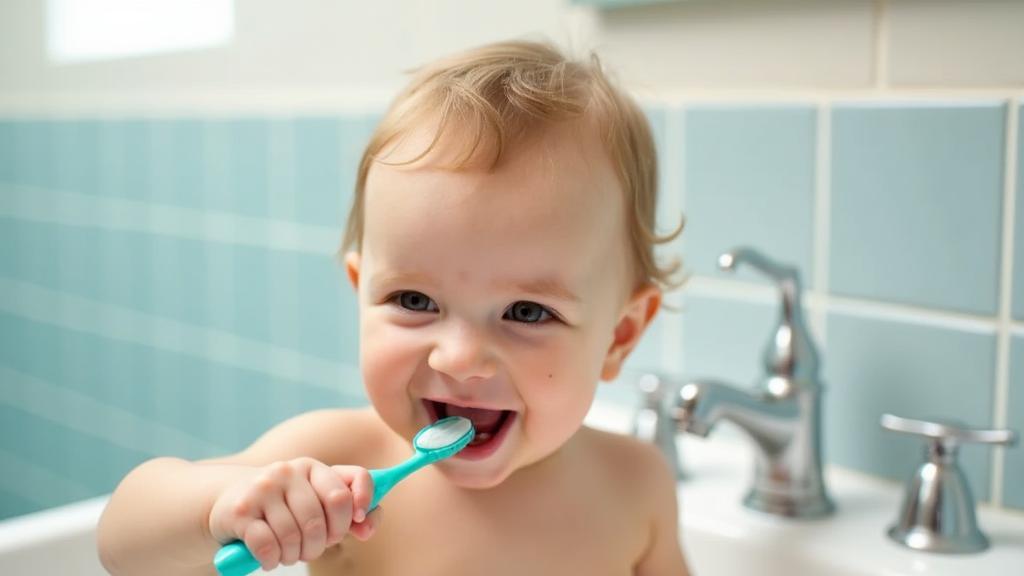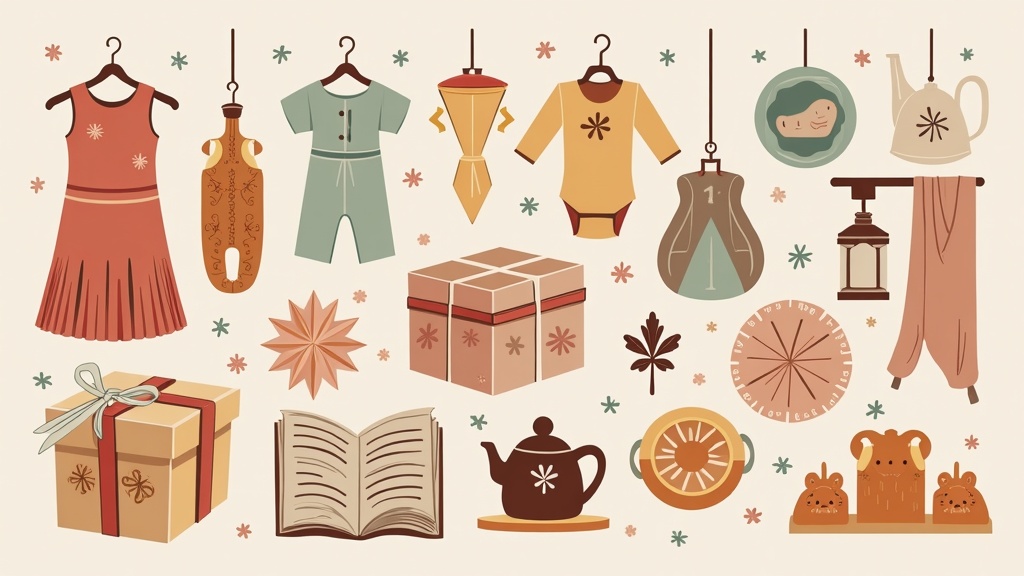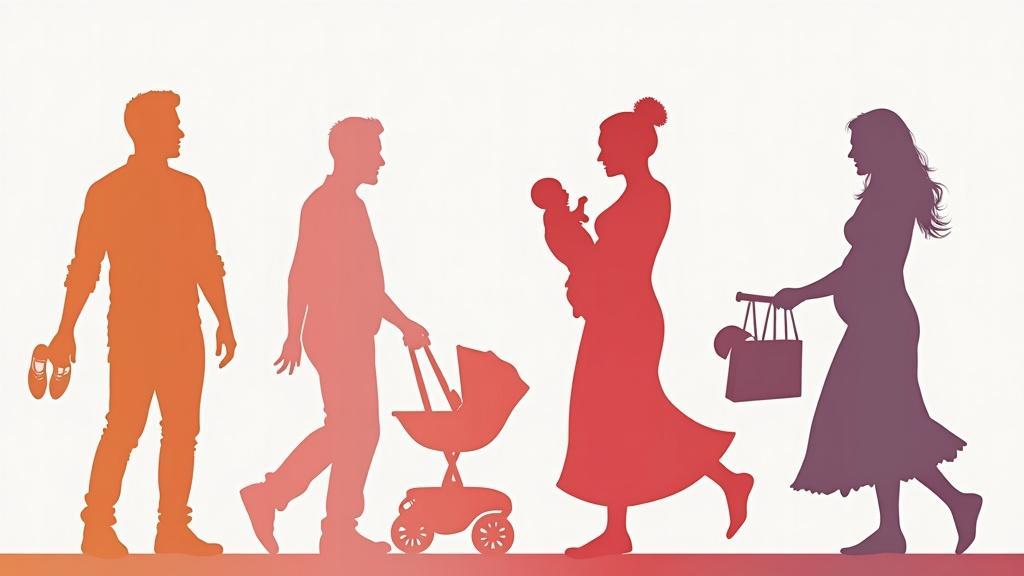Brushing baby teeth is an essential part of establishing a strong foundation for your child’s oral health. Parents often wonder when to start brushing baby teeth, and the truth is that it’s never too early to begin this crucial practice. As soon as your baby’s teeth start to emerge, maintaining their dental hygiene becomes vital not only for their smile but also for their overall health. Expert baby oral health tips suggest that you can start cleaning your baby’s gums even before their teeth erupt, using a washcloth or gauze. Choosing the best toothpaste for babies and the right toothbrush for infants will set your little one on the path to a lifetime of good dental habits.
Caring for your infant’s dental hygiene is a pivotal step in their early development. Ensuring that you brush your baby’s teeth from the onset can prevent future oral health issues and help in the proper alignment of their permanent teeth. Parents might be curious about the best practices for pediatric dental care, particularly regarding the appropriate age to introduce brushing. Utilizing the correct tools, such as a soft-bristled toothbrush designed for infants and fluoride toothpaste, can make this process more effective. By incorporating these habits early, you not only promote a healthy mouth but also instill lifelong oral health practices.
When to Start Brushing Baby Teeth: A Guide for New Parents
Starting to brush your baby’s teeth can feel daunting for new parents, but it’s essential for their oral health. Experts recommend that you begin cleaning your baby’s gums even before the first tooth erupts. This gentle practice not only helps in developing a routine but also contributes to their gum health, setting the stage for proper dental hygiene as they grow. The American Academy of Pediatric Dentistry suggests that you can start brushing as soon as the first tooth appears, typically between 6 to 10 months.
By the time your baby reaches their first birthday, they should be accustomed to the sensation of having their mouth cleaned. Regular brushing helps prevent the buildup of bacteria and plaque, which can lead to cavities in their baby teeth. Remember, even though these teeth will eventually fall out, they are crucial for your child’s ability to chew, speak, and maintain the proper alignment for their permanent teeth.
Choosing the Right Toothbrush and Toothpaste for Infants
Selecting the appropriate toothbrush and toothpaste is vital for your baby’s dental care. For infants, a soft-bristled toothbrush with a small head is ideal, as it can comfortably fit in their tiny mouths without causing discomfort. Parents can start with finger toothbrushes designed for infants before transitioning to standard baby toothbrushes as their child grows. Importantly, ensure that the bristles are gentle to avoid damaging sensitive gums.
When it comes to toothpaste, it’s recommended to introduce fluoride toothpaste only after your baby turns one year old. Initially, a smear smaller than a grain of rice is sufficient. As your child approaches two years of age, you can increase the amount to the size of a grain of rice. The right amount of toothpaste is crucial to prevent swallowing too much fluoride, which can lead to dental fluorosis.
Effective Tooth-Brushing Techniques for Babies
Brushing your baby’s teeth effectively requires a bit of technique to ensure a thorough clean without discomfort. Start by wetting the toothbrush and applying a small amount of fluoride toothpaste. Holding the toothbrush at a 45-degree angle to the gums allows you to clean efficiently while minimizing discomfort. Use gentle, circular motions to clean each tooth’s surfaces, paying attention to the front, back, and chewing surfaces.
It’s essential to make tooth brushing a fun and engaging activity for your baby. Encourage your child to participate by letting them hold the toothbrush and mimic your movements. This involvement not only helps them get used to the routine but also supports their development of good dental habits. Remember, the goal is to brush for about two minutes, and while it’s important to teach them to spit out the toothpaste, avoid rinsing with water afterward to allow the fluoride to protect their teeth.
The Importance of Fluoride Toothpaste in Early Dental Care
Fluoride toothpaste plays a significant role in your child’s dental health, as it helps to strengthen tooth enamel and prevent cavities. However, the introduction of fluoride should be approached cautiously. The American Academy of Pediatric Dentistry recommends using a smear of fluoride toothpaste once your baby turns one year old. This small amount is effective in providing the benefits of fluoride without the risks associated with swallowing larger quantities.
Consulting with your pediatric dentist is crucial to determine the appropriate use of fluoride toothpaste for your child. While some studies suggest waiting until age two to introduce fluoride, each child’s dental needs may vary. Regular dental check-ups will help monitor your child’s oral health and ensure they receive the right guidance on toothpaste use as they grow.
Baby Oral Health Tips: Building a Strong Foundation
Establishing a solid foundation for your baby’s oral health is essential from the very beginning. Start by cleaning your baby’s gums with a soft cloth or gauze after feedings to remove food particles and bacteria. This practice not only promotes good hygiene but also helps your baby get accustomed to having their mouth cleaned, making the transition to brushing easier when the first teeth erupt.
Additionally, instilling good habits early on is crucial. Avoid putting your baby to bed with a bottle, as this can lead to tooth decay. Instead, after their last feeding, you can gently wipe their gums or brush their teeth. Encourage healthy eating habits and limit sugary snacks, which can contribute to cavities. These small steps can significantly impact your child’s long-term oral health.
Visiting the Dentist: When and Why It Matters
Establishing a dental home for your child by the age of one is an important step in ensuring their oral health. Early visits to a pediatric dentist can help identify any potential issues before they become serious problems. During these visits, the dentist will conduct a thorough examination, provide guidance on proper brushing techniques, and discuss dietary recommendations to promote healthy teeth.
Moreover, regular dental visits can help familiarize your child with the dental environment, reducing anxiety and promoting positive associations with oral care. The dentist can also offer valuable advice tailored to your child’s specific needs, such as when to start flossing or how to manage thumb-sucking. Early intervention can significantly reduce the risk of dental problems down the road.
Understanding the Role of Baby Teeth in Development
Baby teeth, while temporary, play a crucial role in your child’s overall development. They not only assist with chewing and speaking but also guide the growth of permanent teeth. Premature loss of baby teeth can lead to misalignment and other dental issues later on. Therefore, maintaining their health through regular brushing and dental check-ups is essential.
As your child grows, these primary teeth will pave the way for their adult teeth, making it vital to ensure they are healthy. By prioritizing your baby’s oral health from the start, you can help establish a strong foundation for their future dental well-being.
Creating a Fun Tooth-Brushing Routine for Babies
Tooth brushing can be a fun and enjoyable experience for your baby with the right approach. Incorporating songs, games, or even letting them choose their toothbrush can make the process more engaging. For instance, you could play a favorite song during brushing time, turning it into a mini dance party while you clean their teeth.
Additionally, being a role model by brushing your own teeth alongside your baby can encourage them to mimic your actions. This shared experience not only strengthens your bond but also reinforces the importance of oral hygiene. Establishing a playful and positive routine will help your child develop a lifelong appreciation for dental care.
Common Myths About Baby Oral Health Debunked
There are several myths surrounding baby oral health that can lead to confusion among new parents. One common misconception is that baby teeth do not require care since they will eventually fall out. In reality, neglecting baby teeth can lead to serious dental issues, including cavities and infections, which can affect the development of permanent teeth.
Another myth is that fluoride is not necessary for infants. However, fluoride is essential for strengthening tooth enamel and preventing decay. It’s crucial to educate yourself on the facts and consult with pediatric dental professionals to ensure you are providing the best care for your child’s oral health.
Frequently Asked Questions
When should I start brushing my baby’s teeth?
You should start brushing your baby’s teeth as soon as their first tooth erupts, typically between 6 to 10 months of age. Prior to this, gently clean their gums with a washcloth after feeding to maintain oral health.
What are some baby oral health tips for new parents?
To maintain your baby’s oral health, clean their gums with a wet cloth before teeth appear, use a soft-bristled toothbrush once teeth erupt, and introduce a small amount of fluoride toothpaste around age 1. Regular dental visits should start by 12 months.
What is the best toothpaste for babies?
The best toothpaste for babies is fluoride toothpaste designed for young children. For babies under 1 year, use just a smear, and when they turn 2, you can increase to a pea-sized amount. Always consult your pediatric dentist for recommendations.
What type of toothbrush is recommended for infants?
For infants, a finger toothbrush or a small, soft-bristled toothbrush is recommended. Look for products specifically designed for babies to ensure the brush is gentle on their gums and teeth.
How can I help my baby get used to brushing their teeth?
To help your baby get used to brushing their teeth, make it a fun routine by allowing them to hold the toothbrush, sing songs, or choose their favorite character toothbrush. Start with gentle brushing and gradually increase as they become more comfortable.
When should I take my baby to the dentist for their first visit?
You should take your baby to the dentist for their first visit by 12 months of age. This early visit helps establish a dental home and allows the dentist to guide you on proper brushing techniques and overall baby oral health.
What are some techniques for brushing baby teeth effectively?
To effectively brush your baby’s teeth, wet the toothbrush, apply a small amount of fluoride toothpaste, hold the brush at a 45-degree angle, and use gentle circular motions for about two minutes. Ensure to cover all surfaces of each tooth.
| Topic | Key Points |
|---|---|
| When to Start | Start brushing before teeth erupt; clean gums after eating. |
| First Tooth Eruption | Most babies get their first tooth between 6 and 10 months. |
| Choosing a Toothbrush | Use gauze or washcloth initially; switch to a soft-bristled infant toothbrush after teeth erupt. |
| Toothpaste Guidelines | Introduce smear of fluoride toothpaste at age 1; increase to grain of rice at age 2. |
| Brushing Technique | Brush at a 45-degree angle using small circles for about two minutes. |
| Other Tips | Replace toothbrush every three months; start flossing when two teeth touch. |
| Dental Visits | Establish a dental home by 12 months for preventive care and guidance. |
Summary
Brushing baby teeth is an essential practice for maintaining your child’s oral health from an early age. Experts recommend starting this routine even before the first tooth erupts, focusing on gum health first. As your baby grows, appropriate toothbrushes and fluoride toothpaste should be introduced, with specific techniques to ensure thorough cleaning. It’s vital to establish dental care habits early, including regular visits to the dentist by the time your child is 12 months old. By prioritizing brushing baby teeth, you are helping to pave the way for a lifetime of healthy smiles.



